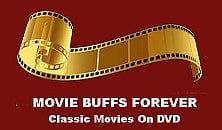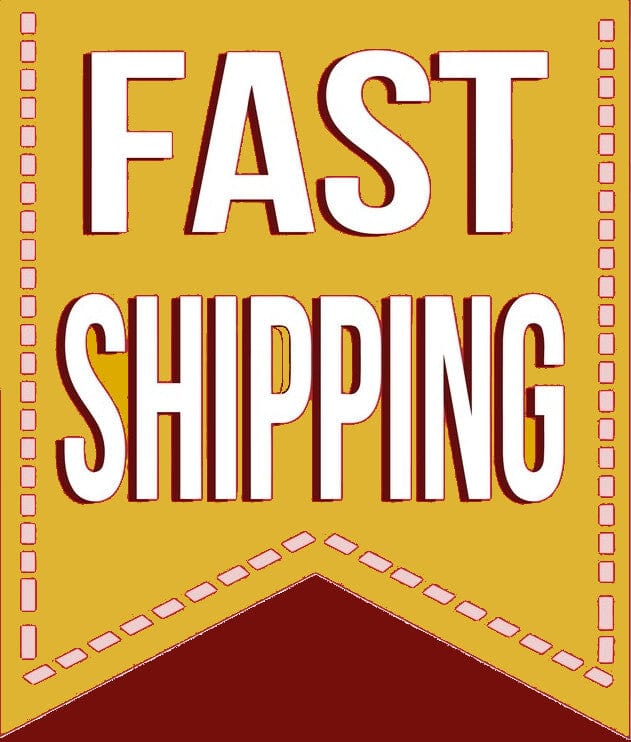Great Movies of the Golden Age - Part 4
Posted on 24 Apr 00:00

Hollywood experienced an influx in experimental film making in the golden age era. Some of the most prominent actors of the era such as Humphrey Bogart, Laurence Oliver, and Marilyn Monroe become big stars during this time. The era represented a revolution in film making filled with exceptional talents, new production technologies, and freedom for script-writers.
Filmmakers learned how to change space and time on screen, for example, they employed varying angles and created multiple sets that made human movements to appear real. This was a breakthrough in filmmaking and modern storytelling. Independent movie making companies also arose in the Golden Age era.
1. It Happened One Night (1934)
'It Happened One Night' is a romantic comedy whose plot revolves around a wealthy socialite Ellen Andrews (Claudette Colbert). She tries to escape her father’s influence and falls in love with a rogue reporter Peter Warne (Clark Gable). The plot is adapted from a short story by Samuel Hopkins Adams called “Night Bus” published in 1933.
Ellen is a spoiled heiress to a huge estate. She elopes with King Westley (Jameson Thomas), who is a fortune-hunter and a pilot, she does this against the wishes of her wealthy and powerful father. Her father wants Ellen to end her marriage to Westley because he knows that he is only after the money. Ellen decides to part with her father in Florida, and boards a bus to New York City to be with her husband. On the bus, she meets Peter Warne, a newspaper reporter who is currently unemployed.
Warne gives Ellen two options. He tells her that he will keep silent about her location if she gives him an exclusive interview. On the other hand, if she refuses he will tell her father where she is. Ellen agrees to the exclusive interview.
Frank Capra directed and produced the movie. It won five academy awards that included the Best Picture, the Best Director, the Best Actor, the Best Actress, and the Best Writing, Adaption.
'Double Indemnity' is a psychological thriller with a plot based on the life of insurance salesman, Walter Neff (Fred MacMurray), who returns to his office in downtown Los Angeles. He had just been shot and wounded in his shoulder he begins making a recording into a Dictaphone for his colleagues and friends.
The storyline is told in a flashback narrating events that took place in Neff’s life before the shooting. He meets with an attractive woman Phyllis Dietrichson (Barbara Stanwyck) to remind her husband to renew his car insurance policy. Phyllis flirts with Neff to the point she asks him if she could take a life insurance policy on her husband without his knowledge.
Neff suspects that Phyllis is plotting to murder her husband and refuses to be part of the plan. However, he changes his mind and comes up with a plan that would kill Phyllis’ husband and trigger the double indemnity clause. This would double the pay they receive. Phyllis takes her husband to the train station for a trip to attend a college reunion, and things don't go as planned.
Billy Wilder directed the movie and co-wrote it with Raymond Chandler. The movie was nominated for seven academy awards, but won none.
'North by Northwest' is a spy thriller whose plot is based on the story of an innocent man who is being hunted by a secret organization. The young man Roger Thornhill (Cary Grant) is an advertising agent who is mistaken for a waiter named George Kaplan, the real target of the secret organization. Roger is kidnapped and transported to an Island where is interrogated by Philip Vandamm (James Mason), a spy.
Vandamm refuses to listen to Roger and arranges for his death through a staged drunken-driving accident. Roger survives and he is arrested for driving under the influence. The police and his mother don't believe Roger’s story. He goes with his mother to Kaplan’s hotel room, but he is not there. The thugs call the hotel room looking for Kaplan, and Roger answers the phone.
He escapes from the thugs and heads to the U.N General Assembly building to Townsend (Philip Ober), a man he met on the island when he was kidnapped. But, the man he meets at the U.N building is not the same Townsend he met on the island. And, the chase continues.
Alfred Hitchcock directed the movie that was nominated for three Academy Awards but did not win any. Nevertheless, the film won the Edgar Award for the Best Motion Picture Screenplay.
'Rear Window' is a mystery thriller with a plot that is centered on the life of a professional photographer, L.B. Jefferies (James Stewart). He is recovering from a broken leg in a wheelchair in his apartment. It is a hot summer and Jeff is watching, through binoculars, his neighbors in the building across from him, who have left their windows open to keep cool. One of the neighbors he watches is “Miss Torso” (Georgia Bagdasarian), who is a talented single composer-pianist.
Jeff has a beautiful socialite girlfriend, Lisa Fremont (Grace Kelly) who visits him regularly. He is also visited by an insurance company nurse called Stella (Thelma Ritter). Stella urges Jeff to marry, but he is reluctant because of the difference in style between him and his girlfriend Lisa.
Jeff hears a woman screaming in the middle of a thunderstorm one night, and then hears the sound of breaking glass after the woman shouts “Don’t.” He again falls asleep, and is awaken later by thunder to see Thorwald (Raymond Burr) leaving in the middle of the rain with a suitcase in his hands.
Alfred Hitchcock directed the movie written by John Michael Hayes adapted from a novel by Cornell Woolrich published in 1942 called “It Had to Be Murder.” The film won the Best Actor Award from the National Board of Review Awards and the NYFCC Awards.
5. The Philadelphia Story (1940)
'The Philadelphia Story' is a romantic comedy film whose plot is based on the story of Tracy Lord (Katharine Hepburn), the firstborn daughter of a wealthy Philadelphian socialite family. Tracy was previously married to a rich yacht designer C.K. Dexter Haven (Cary Grant) but he divorced him two years prior because her father rejected him. Tracy’s father didn’t like her marriage to Dexter because he drank too much, and didn't meet the standards he set for his family and friends.
Tracy was now engaged to marry George Kittredge (John Howard), a rich man of the people. In New York, Spy magazine publisher Sidney Kidd is eager to cover the wedding, and assigns reporter Macaulay "Mike" Connor (James Stewart) and photographer Liz Imbrie (Ruth Hussey). Kidd intends to use the assistance of Dexter, who has been working for Spy in South America. Dexter tells Kidd that he will introduce them as friends of Tracy's brother Junius (a U.S. diplomat in Argentina). Tracy is not fooled, but Dexter tells her that Kidd has threatened the reputation of her family with an innuendo-laden article about her father's affair with a dancer. Many plot twists insue.
George Cukor directed the film based on a Broadway play written in 1939 by the same name. The movie was nominated for several awards and won two Academy Awards for the Best Actor and the Best Screenplay.
6. From Here to Eternity (1953)
'From Here to Eternity' is a war drama with a plot based on the suffering of three U.S soldiers. The film opens with Private Robert E. Lee (Montgomery Cliff) being transferred to a rifle company called Schofield Barracks located in Oahu. Captain Dana Holmes (Philip Ober) “Dynamite” wants Lee to join his team because he was a former boxer. Lee refuses the offer from Dana because he no longer fights after a fight with a friend resulted in blinding of that friend.
Dana decides to make Lee’s life miserable and orders First Sergeant Milton Warden (Burt Lancaster) to proceed with a court-martial after Maggio is sentenced to the stockade after walking off guard duty and getting drunk. Dana suggests that Lee’s punishment should be doubled as an alternative to court-martial. Lee is rebuffed by other non-commissioned officers and only his friend Private Angelo Maggio (Frank Sinatra) supports him. Lee and Maggio join a social club and both become attracted to Lorene. The Japanese attack Pearl Harbor, and lives are forever changed.
Fred Zinnemann directed the movie written by Daniel Taradash based on a novel published in 1951 by the same name. The movie was nominated for several awards and won several Academy Awards including the Best Motion Picture, the Best Director, and the Supporting Actor (Frank Sinatra) among others.
'The Third Man' is a British film noir whose plot revolves around the life of Holly Martins (Joseph Cotton). He arrives in a new town to take a job alongside his friend Harry Lime (Orson Welles), to sadly learn that his friend has passed on. The film is set in postwar Vienna and its opens with the American writer Holly Martins arriving looking for his childhood friend.
Martin attends his friend’s funeral and comes across two British Royal Police. One of the police, Sergeant Paine (Bernard Lee), and his superior Major Calloway (Trevor Howard) is a fan of Martin books. After a while, Mr. Crabbin (Wilfrid Hyde-White) asks Martins to give a talk at a book club a few days later. There are many plot twists that reveal all is not as it seems.
Carol Reed directed the movie that was nominated for several academy awards and won the award for the Best Cinematography-Black and White.
Conclusion
The great movies of the golden age discuss above are timeless classic movies that will keep movie buffs entertained while making them appreciate the progress the film industry has made over the years.
Movie Buffs Forever stocks classic movies on DVD from the 1940's to the early 2000's. Browse our vast collection of old, rare and out of print classic movies on DVD.
YOU MAY ALSO LIKE:
Why We Still Love DVDs

